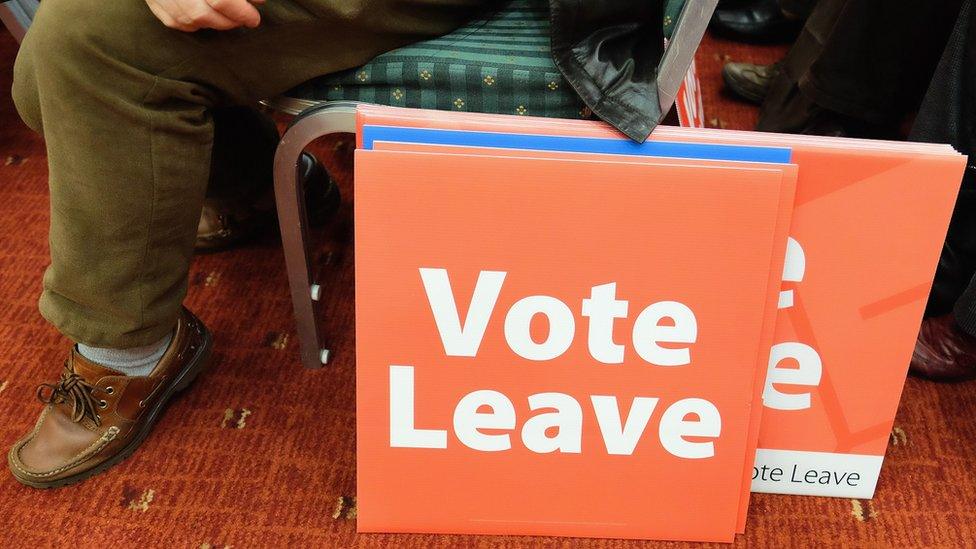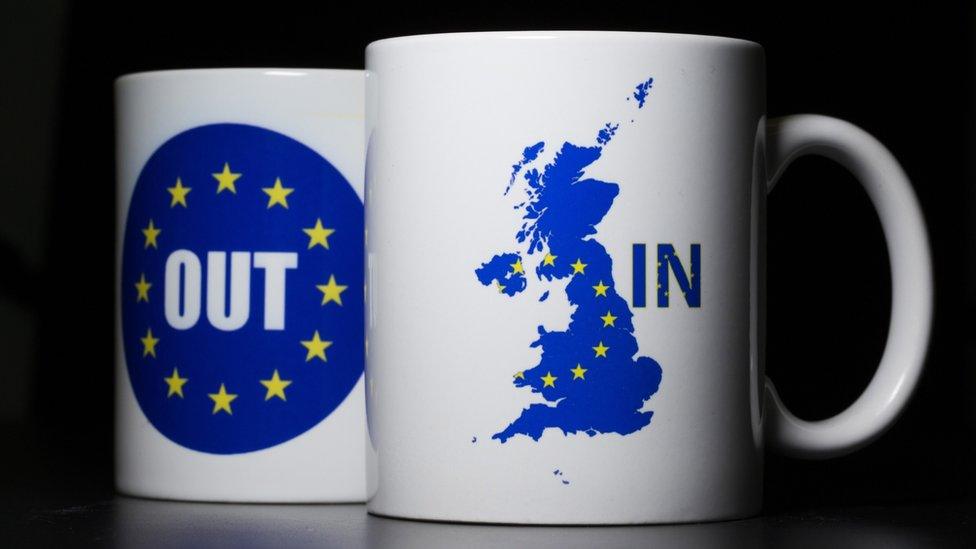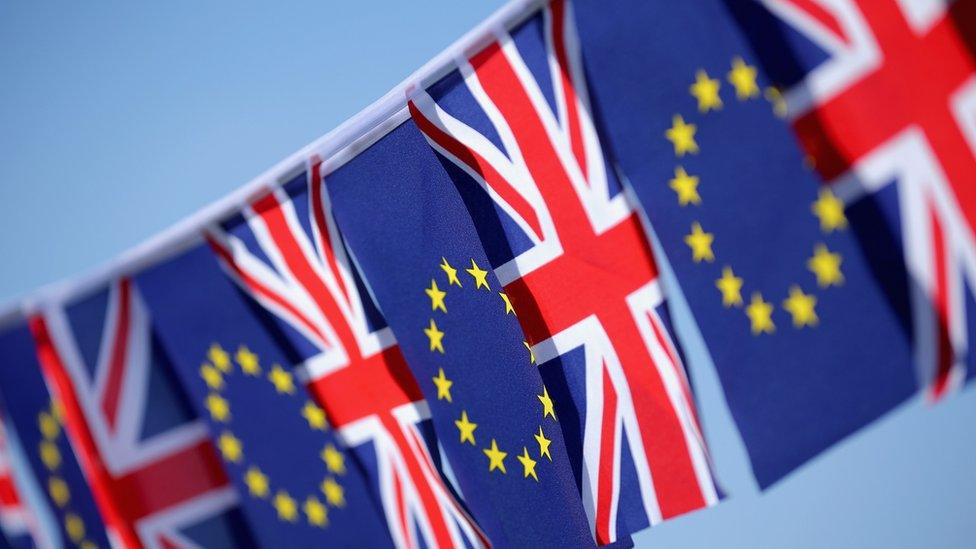The economy and Brexit – a tangled tale
- Published
- comments

Leaving the EU would mean the UK saw faster growth, lower prices and a larger economy, Economists for Brexit argue
Today eight economists have struck out against much mainstream economic thinking and suggested that the UK economy would flourish outside the European Union.
The Economists for Brexit argue that if the Vote Leave campaign is successful on 23 June, the UK can look forward to faster growth, lower prices and a larger economy.
They are up against formidable opposition - what those who support Britain remaining in the EU call the "consensus view" that the UK would be poorer if Brexit were to happen.
The group that make this argument includes the Bank of England, the Treasury, the International Monetary Fund, the Institute for Fiscal Studies and the London School of Economics.
The studies they have produced are indeed substantial and serious.
One Remain source told me this morning that "the economic case against leaving the EU is beyond doubt".
And that claiming the debate was in any way "balanced" between in and out was akin to disputing climate change evidence.
Certainly, the weight of established economic opinion has favoured Britain staying in the European Union on economic grounds.
But that does not mean that the Economists for Brexit group can lightly be dismissed.

First its membership includes Patrick Minford, professor of applied economy at Cardiff University who was formerly one of the "wise people" advising the Treasury between 1993 and 1996.
And Gerard Lyons, former chief economist at Standard Chartered Bank who is now adviser to Boris Johnson, the London Mayor and of course prominent Brexit campaigner.
Many would baulk at describing such figures as "lacking credibility", despite the efforts of some in the Remain campaign.
"Tinpot" was one word I heard used.
Second, the economic model they use to forecast the future - though different from the Treasury's for example - has a long track record and has been influential in the past.
That economic model does produce a radically different view of the future if Britain were to leave.
Where the Treasury report last week said the economy would be more than 6% smaller - and poorer - by 2030 if Britain leaves the EU, today's report says it would be 4% larger, and richer.
I asked Professor Minford why there was such a substantial variance.
"For some reason I haven't been able to understand all these bodies assume that we keep the tariffs that the European Union levy at the moment on the rest of the world in being," he told me.
"Whereas what we are assuming is that we take advantage of leaving the EU to have free trade with the rest of the world unilaterally - we simply say to the rest of the world sell to us at your prices.
"That brings down the costs to the consumer and transforms the economy in our modelling because consumers have lower prices, wages fall for employers because they are still better off with lower wages because the prices are falling.
"So there's this dynamic unleashed into the economy, that's completely absent from these other analyses because they just assume we stay with the EU tariffs."

Now, many may have noticed a couple of controversial points in that answer.
First, that wages could fall.
And second, that complete free trade ("sell to us at your prices") could be highly damaging to some important sectors of the UK economy such as farming and manufacturing.
Professor Minford does say that subsidies may have to continue for farming and some manufacturing sectors - steel for example - and that would be a decision for the UK government.
He says the gain on economic dynamism would far out-weigh the costs.
The views of the Economists for Brexit are certainly in the minority among those we have heard from so far on the EU debate.
And a wide range of significant economic institutions and highly respected think tanks are ranged against them.